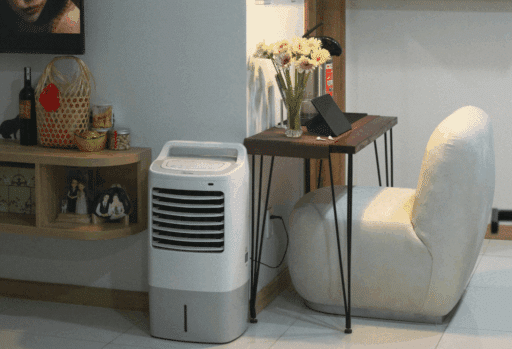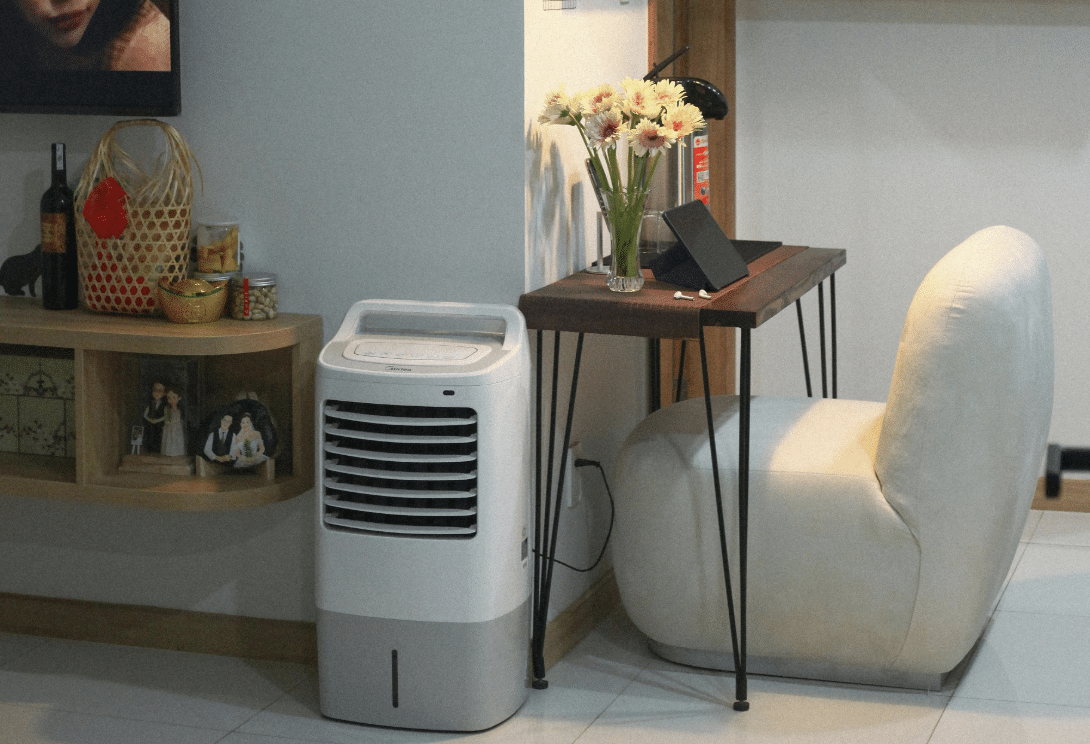In today’s highly industrialized and developed environment, it is relatively easy for indoor air pollutants to exceed a healthy level. Something as simple as cooking a meal can introduce pollutants like airborne particles and harmful gases, which often remain in the air long after you are finished.
As more and more people prioritize their health and wellness, air purifiers for mold, pollutants, and airborne particles have quickly grown in immense popularity, emerging as a beacon of hope, particularly for those suffering from debilitating allergies or living with smokers. Adding these clever machines to your home maintenance tool kit will help you adopt a healthier lifestyle, improve sleep hygiene, and enhance your overall well-being.

Removes Allergens
Your home is meant to be an oasis of tranquility, but it can feel challenging to achieve this if your indoor air quality is contaminated with allergy triggers such as mold spores, pollen, dust, dust mites, pet dander, and smoke. One of the most significant advantages of selecting an air purifier equipped with High-Efficiency Particulate Air (HEPA) filters is that it can drastically reduce allergen levels in your household air.
Exposure to these airborne allergens can lead to unwanted symptoms, including congestion, a runny nose, sneezing, coughing, and itchy and watery eyes. If your symptoms are more noticeable first thing in the morning or at night, it is a fairly clear indication that you are being affected by allergens in your home.
Improved Sleep Hygiene
There is nothing that can ruin your day quicker than a bad night’s sleep. Poor bedroom air quality can significantly impact your sleep hygiene, making it feel almost impossible to get a proper night’s rest. Particles such as pet dander, dust, pollen, and other allergens in the air and on your bedding can cause respiratory irritation, including nasal congestion, sneezing, and coughing.
Placing an air purifier in your bedroom can drastically reduce exposure to airborne particles during the night, which may be silently disrupting your sleep. Place your purifier on a nightstand or dresser, where walls, upholstery, or furniture won’t block the air intake. For even better results, combine your air purifier with other healthy habits, such as improved ventilation, regular cleaning, and reducing the use of high-VOC products.
Lowers Dust Levels
Dust tends to look the same regardless of where you find it in your home. If you judged it simply by how it looks at eye value, you will likely be surprised to know it is made up from a wide range of different particles, including mold spores, dead skin cells, pollen, pet dander, dust mites, bacteria, dirt, and heavy metals like lead.

Due to its long list of harmful and unwanted irritants, people suffering from allergies should prioritize keeping dust levels to a minimum. Air purifiers can help slow the spread of dust around your home by removing particles from the air before they have a chance to settle. While this won’t eliminate it entirely, it will notably mitigate dust.
Eliminates Bad Odors
Some foul odors are relatively easy to eliminate in the home, simply by taking out the rubbish or cleaning up a spilled mess. However, other odors can be challenging to remove, such as cooking odors, chemical residues from new furniture, and pet odors.
Scent molecules are volatile, meaning they evaporate easily when at room temperature. This transforms them into gas that remains in your indoor air. Air purifiers equipped with HEPA filters are capable of filtering out VOCs, which are present in most scent-causing molecules. As air moves through these filters, VOCs and other harmful gases become trapped by the activated carbon, which breaks them down at a molecular level and removes them from the air for good.
Removes Harmful Pollutants
Fine particles can penetrate deeply into your lungs, entering your bloodstream in a manner similar to oxygen, allowing them to access your entire biological system. Exposure to these toxic particles can lead to various health issues, particularly relating to heart health, like stroke, heart attacks, high blood pressure, inflammation, and heart failure. Utilizing air purifiers to reduce and remove particle pollution is particularly important for those living in areas with high pollution levels or an increased risk of wildfires.
Furthermore, exposure to air pollution has also been linked to cognitive effects. A 2021 study by Harvard researchers observed office workers in an urban commercial building in various locations worldwide. When airborne particles increased and proper ventilation decreased, participants took longer to answer test questions and made more errors than usual.

Air Purifier Usage
Due to the numerous positive impacts air purifiers can have on your health, it is strongly recommended to use air purifiers daily. Continuous operation of these devices will ensure consistently low levels of harmful particles and other pollutants in indoor environments are adequately maintained. This daily usage is especially beneficial for combating health risks connected with acute and chronic exposure to unwanted air pollution.
Various research studies support the conclusion that air purifiers can effectively improve indoor air quality when equipped with the correct filter and subject to regular and proper maintenance.







